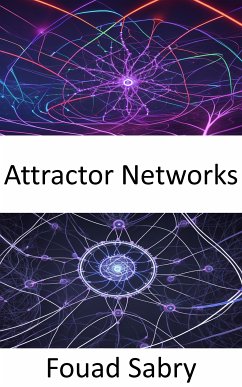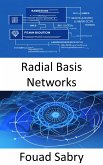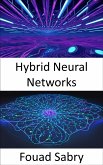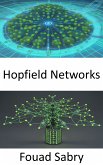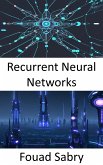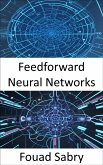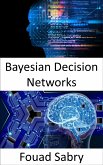What Is Attractor Networks
A sort of recurrent dynamical network known as an attractor network is one that gradually settles into a consistent pattern over the course of time. The nodes that make up the attractor network gradually move in the direction of a pattern, which can be either fixed-point, cyclic, chaotic, or random (stochastic). In the field of computational neuroscience, attractor networks have been extensively utilized to mimic neural processes including associative memory and motor behavior. Additionally, these networks have been utilized in biologically inspired machine learning techniques.An attractor network is made up of a collection of n nodes, each of which can be interpreted as a vector in a space of d dimensions, with n being more than d. Over the course of time, the state of the network will eventually gravitate toward one of a set of predetermined states located on a d-manifold. These states are known as the attractors.
How You Will Benefit
(I) Insights, and validations about the following topics:
Chapter 1: Attractor network
Chapter 2: Artificial neural network
Chapter 3: Hebbian theory
Chapter 4: Hopfield network
Chapter 5: Recurrent neural network
Chapter 6: Autoassociative memory
Chapter 7: Bidirectional associative memory
Chapter 8: Competitive learning
Chapter 9: Types of artificial neural networks
Chapter 10: Dynamical neuroscience
(II) Answering the public top questions about attractor networks.
(III) Real world examples for the usage of attractor networks in many fields.
Who This Book Is For
Professionals, undergraduate and graduate students, enthusiasts, hobbyists, and those who want to go beyond basic knowledge or information for any kind of attractor networks.
What Is Artificial Intelligence Series
The Artificial Intelligence book series provides comprehensive coverage in over 200 topics. Each ebook covers a specific Artificial Intelligence topic in depth, written by experts in the field. The series aims to give readers a thorough understanding of the concepts, techniques, history and applications of artificial intelligence. Topics covered include machine learning, deep learning, neural networks, computer vision, natural language processing, robotics, ethics and more. The ebooks are written for professionals, students, and anyone interested in learning about the latest developments in this rapidly advancing field.
The artificial intelligence book series provides an in-depth yet accessible exploration, from the fundamental concepts to the state-of-the-art research. With over 200 volumes, readers gain a thorough grounding in all aspects of Artificial Intelligence. The ebooks are designed to build knowledge systematically, with later volumes building on the foundations laid by earlier ones. This comprehensive series is an indispensable resource for anyone seeking to develop expertise in artificial intelligence.
A sort of recurrent dynamical network known as an attractor network is one that gradually settles into a consistent pattern over the course of time. The nodes that make up the attractor network gradually move in the direction of a pattern, which can be either fixed-point, cyclic, chaotic, or random (stochastic). In the field of computational neuroscience, attractor networks have been extensively utilized to mimic neural processes including associative memory and motor behavior. Additionally, these networks have been utilized in biologically inspired machine learning techniques.An attractor network is made up of a collection of n nodes, each of which can be interpreted as a vector in a space of d dimensions, with n being more than d. Over the course of time, the state of the network will eventually gravitate toward one of a set of predetermined states located on a d-manifold. These states are known as the attractors.
How You Will Benefit
(I) Insights, and validations about the following topics:
Chapter 1: Attractor network
Chapter 2: Artificial neural network
Chapter 3: Hebbian theory
Chapter 4: Hopfield network
Chapter 5: Recurrent neural network
Chapter 6: Autoassociative memory
Chapter 7: Bidirectional associative memory
Chapter 8: Competitive learning
Chapter 9: Types of artificial neural networks
Chapter 10: Dynamical neuroscience
(II) Answering the public top questions about attractor networks.
(III) Real world examples for the usage of attractor networks in many fields.
Who This Book Is For
Professionals, undergraduate and graduate students, enthusiasts, hobbyists, and those who want to go beyond basic knowledge or information for any kind of attractor networks.
What Is Artificial Intelligence Series
The Artificial Intelligence book series provides comprehensive coverage in over 200 topics. Each ebook covers a specific Artificial Intelligence topic in depth, written by experts in the field. The series aims to give readers a thorough understanding of the concepts, techniques, history and applications of artificial intelligence. Topics covered include machine learning, deep learning, neural networks, computer vision, natural language processing, robotics, ethics and more. The ebooks are written for professionals, students, and anyone interested in learning about the latest developments in this rapidly advancing field.
The artificial intelligence book series provides an in-depth yet accessible exploration, from the fundamental concepts to the state-of-the-art research. With over 200 volumes, readers gain a thorough grounding in all aspects of Artificial Intelligence. The ebooks are designed to build knowledge systematically, with later volumes building on the foundations laid by earlier ones. This comprehensive series is an indispensable resource for anyone seeking to develop expertise in artificial intelligence.
Dieser Download kann aus rechtlichen Gründen nur mit Rechnungsadresse in A, B, BG, CY, CZ, D, DK, EW, E, FIN, F, GR, H, IRL, I, LT, L, LR, M, NL, PL, P, R, S, SLO, SK ausgeliefert werden.

